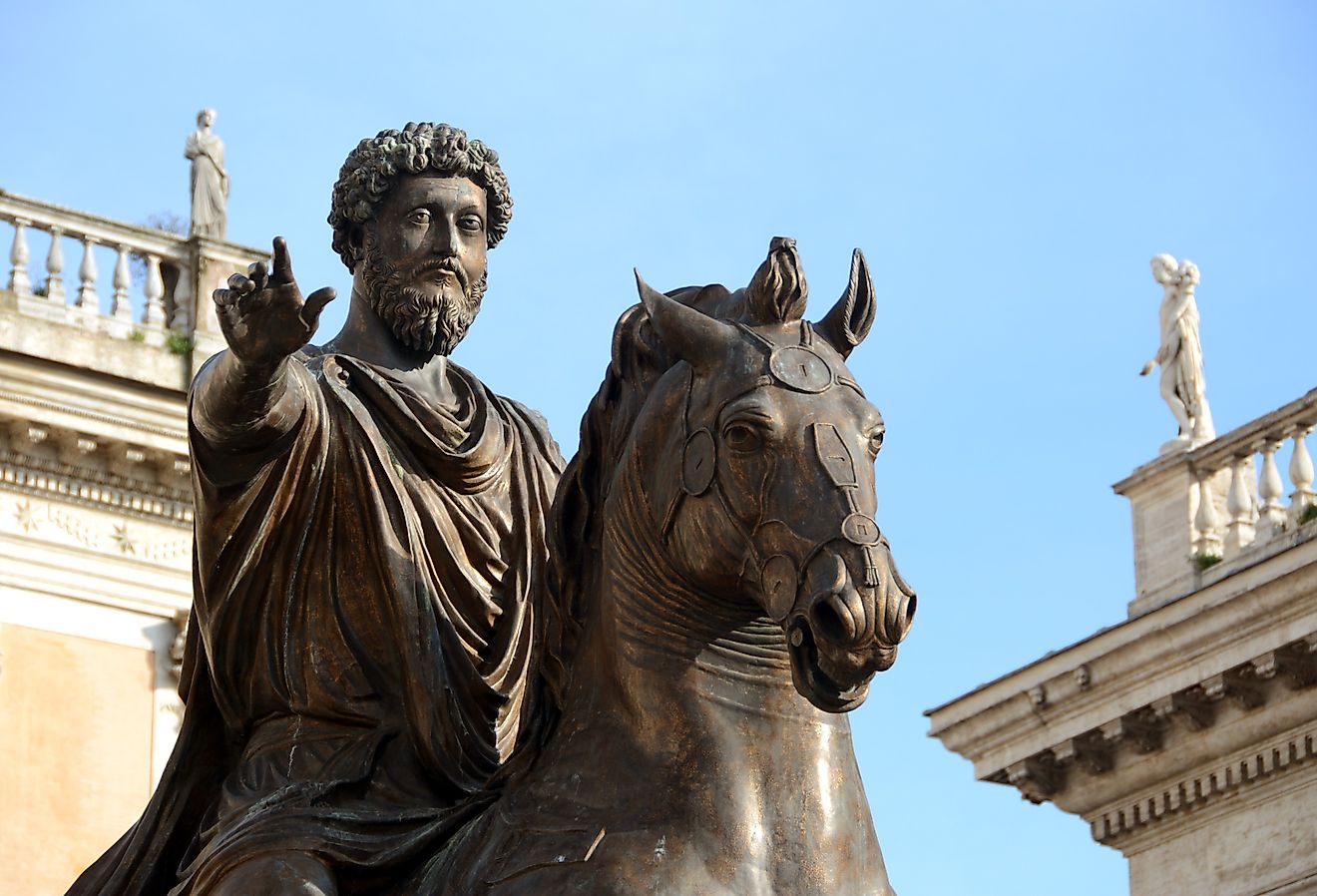
Stoic Wisdom: Stop Doing These 7 Things
There is an abundance of advice on how to improve your life. What's unique about advice from stoicism is that the advice is useful to anyone in any circumstance. Whether you are facing hardship or success, there is something to gain from learning about the philosophy. Philosophy from the great Stoics is even integrated into some forms of psychotherapy. While there is a lot you can do to change, sometimes the best change comes from not doing. Here are seven things the great stoics advised against.
1. Focusing On Things You Cannot Control

According to the great Stoics, people must accept there are things in their lives that they cannot control. Throughout most of our lives, things happen that are outside of our control. No matter how hard we try, we cannot control things that happened in the past, things that might happen in the future, or the thoughts and actions of other people. The great Stoics recognized that there is a limited amount of control people have over their lives. To be happier, the stoics believed people should stop focusing on things outside of their control. Instead, the Stoics recommended people focus on what is in their control.
Epictetus was a stoic with little control over certain aspects of his life. He was born a slave, had a crippled leg, faced exile from Rome to Greece, and lived in poverty. Despite his hardships, Epictetus had a positive outlook. He believed although he could not control his external circumstances, his mind, opinions, and desires were his to control. According to Epictetus, it is up to us to keep our own peace of mind despite external events.
2. Letting Your Mind Get Away

The stoics believed in training your mind. While this might seem irrelevant to some people and a waste of time, the stoics believed it was important not to let your mind get away from you. Training your mind involves discipline and motivation toward improving yourself. Seneca recommended journaling at the end of each day. He recommended writing down when you became irritated by something trivial or acted angrily to someone. This way, Seneca believed you were taking stock of each day and hoping to do better the next day.
Marcus Aurelius had a different strategy to train his mind. He would tell himself every morning that he was probably going to encounter a lot of angry people and stressful situations. This way, he was preparing himself for the day ahead and less likely to respond in an unhelpful way. By training the mind and being more self-aware, the stoics saw that people could choose their reactions to situations.
3. Forgetting Moderation

This virtue of temperance is often forgotten but not unimportant. The Stoic virtue of temperance is about moderation. Moderation is key to living a well-balanced life. Forgetting moderation leaves people in the extremes. As a society, the extremes are the most talked about. There are people who value their careers and don't value sleep. People are also often grouped at one end of a spectrum based on their character. For example, people may be categorized as reckless or timid, lazy or insatiable, and insecure or arrogant.
However, the reality is people are on a spectrum of qualities. While there are desirable virtues, too much of one quality can become a problem. For example, a person can become too timid or too ambitious. Remembering the stoic virtue of temperance is a reminder to think of your life in terms of moderation.
4. Falling Prey to Negative Emotions

Another stoic lesson is to stop falling prey to negative emotions. In day-to-day life, unpredictable situations arise. These situations can give rise to intense emotions. Many great stoics talk about the importance of being aware of your emotions and recognizing the role they play in decision-making.
Marcus Aurelius talked about the importance of being free from the passion of emotions. This idea is often confused with being free of emotion. However, Aurellius's idea is about being free of the frenzy of emotion, not emotion itself. Being free from the frenzy of emotion means being free of acting on the impulse of an emotion. An individual can feel intense anger but not immediately punch the closest person.
5. Holding Onto Anger

One negative emotion many people get stuck on is anger. This brings out another stoic lesson, not to hold onto anger. The stoic philosopher Seneca wrote extensively about anger after his brother Novatus asked him how to be less angry. Seneca's philosophy offers some strategies for overcoming anger. According to Seneca, anger is a bad habit that people usually pick up from their parents.
While anger may feel appropriate at the moment, the consequences of anger are that existing pain increases. Too often, anger does more harm than good. While anger might seem like a defense of virtue, it is acting as a substitute for other virtues. One strategy to cope with anger is to ask, "How is getting angry going to help?" Seneca said the cure for anger is delay. This is because delaying our response when we are angry gives us a better chance of rejecting our desire for passionate actions.
6. Wasting Time

The Stoics understood the importance of time. Unlike material possession, once time is gone, it is impossible to regain, and time will continuously move forward. The expression "memento mori" is famously attributed to the stoics. The expression means, "Remember you must die." It is a reflection on the temporary nature of life. Everything alive will one day come to an end.
Remembering that there is not infinite time on the planet serves as an incentive for people to stop wasting time and pursue the goals they want. The Stoics also believed that people allow others and obligations to take up their time too easily. While calendars and schedules assist with the organization of our daily lives, they were not meant to be a cage. The stoics remind us that although it feels like there is endless time, there really isn't.
7. Being a Know-It-All

One of the most valuable lessons the great stoics advised against was being a Know-It-All. Epictetus was, at one point, a teacher of philosophy. He believed it was impossible for someone to learn what they think they already know. He applied this idea to his students, who said they wanted to learn but acted as if they already knew all the answers. Epictetus said people should always stay a student and recognize that there is always more to learn.
Learning philosophy, or any subject, requires throwing away vanity and conceit. The best students leave egos aside and embrace the joy of ignorance. Whether trying to learn at school or even have a conversation, everyone can benefit from throwing away vanity and listening with a more open ear. This lesson isn't specific to stoicism. Socrates is famously quoted as saying the paradox, "I know that I know nothing."
Look More Into Stoicism
Whether you want to improve your life to feel happier or be more successful, listening to the stoic lessons above can help you improve your life. While these lessons are important and a big part of stoicism, they only represent a small portion of the philosophy. Stoicism is an ancient philosophy with many lessons and ideas to benefit from learning about. Consider reading more on stoicism to enrich your life and share what you learn with those around you to inspire their curiosity.











